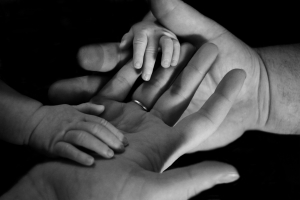 Wealthy families lose their money every day. Statistics show that 70% of the family fortunes created in America are gone in two generations and 90% within three. One of the factors contributing to this dismal record is a misunderstanding of what comprises a legacy. Legacy is more than the sum total of the material assets one generation passes to another. Those assets make up a decedent’s estate.
Wealthy families lose their money every day. Statistics show that 70% of the family fortunes created in America are gone in two generations and 90% within three. One of the factors contributing to this dismal record is a misunderstanding of what comprises a legacy. Legacy is more than the sum total of the material assets one generation passes to another. Those assets make up a decedent’s estate.
The legacy left to a family is not merely money, possessions, and investments. A family’s legacy is rooted in its wisdom and values. It can strengthen family bonds and preserve wealth. An estate when not supported by the other components of legacy can pull a family apart and misdirect the lives of heirs. Inherited wealth, without an understanding of the responsibilities that come with it, can be the downfall of those who receive it. Instead of providing opportunity, it can be the temptation that creates family discord and a profligate lifestyle. Wealth is a wonderful thing to have and a terrible thing to let control you.
If you’re in a position to bestow wealth on your children and grandchildren, ask yourself: Are my heirs ready to handle the responsibilities that will accompany my wealth? Then ask yourself this question: Did my material wealth give me my values, wisdom, and sense of responsibility, or was it my values, wisdom, and sense of responsibility that enabled me to earn, keep, and preserve my material wealth?
Your material wealth grows out of who you are. Who you are is revealed by what you value. Experience brings the wisdom to determine your values. Together experience, wisdom, and values combine to form the DNA of legacy. Just as you have an estate plan, you need to have a plan for passing on that legacy. Especially if you want to see more than one generation of your family benefit from the wealth you have accumulated and preserved.
While an estate plan goes into action at the time of your death, your legacy plan best serves the interests of you and your family if it is active in the lives of your heirs before your demise. One part of your legacy plan should address philanthropy. Not just the end-of-life charitable distributions you wish to make, but the understanding of philanthropy you want to share with your children and grandchildren.
The best training for your heirs to assist them in developing an understanding of philanthropic responsibilities is hands on. And the best way to get that training is to establish an independent donor advised fund from which they can recommend grants to nonprofit organizations. Working with your children and grandchildren as they determine and assess the causes and organizations they wish to support will show them the values you have developed over a lifetime. You’ll be able to share the wisdom that has grown out of your experience.
But in the end, they will be the ones deciding with whom to share their philanthropic dollars. Making those decisions can be life enhancing experiences. They can put your heirs on the road to developing their own wisdom about wealth and its responsibilities. There is no better way to recognize the values growing within you than through active philanthropy.
This information contained in this article is intended solely for educational purposes.
The content is not intended, and shall not be construed as professional advice (or a substitution for) including but not limited to legal, financial, tax or any other professional interpretation.
